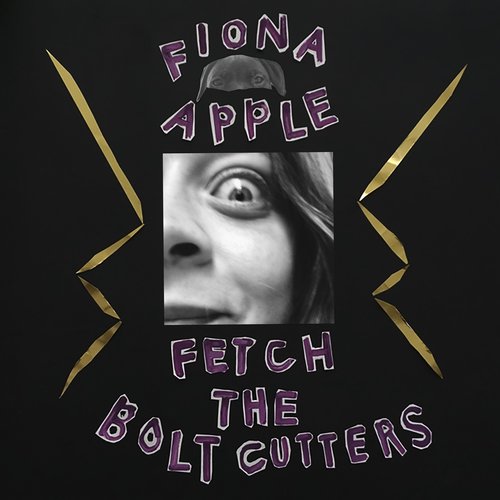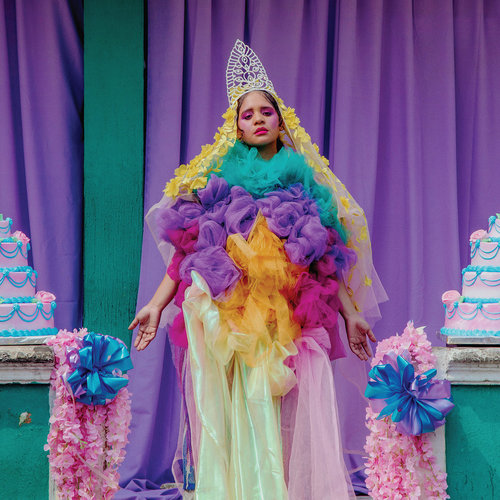5 Best Music Albums Of 2020
At certain moments, 2020 felt like a year that might not ever come to an end. Now that it's mostly in our rear view, can a retrospective give a shape to that swarm of weeks and months? Can we make sense of layer upon layer of fear, anger, frustration, confusion, exhilaration and exhaustion that piled up like soil falling over our heads? Sometimes art breaks through. Better to think of the best music of 2020 as an urgent cacophony of distinct voices rather than a chorus with a single melody. Many voices, with many stories to tell. Here are the 50 best albums of a year unlike any we can remember.
1.
SAULT
Untitled (Black Is)
SAULT, an enigmatic collective that shrouds itself in mystery, produced the year's most viscerally direct album at the exact moment it was needed. Created in the midst of a global reckoning, and released on Juneteenth, Untitled (Black Is) was intentionally made to uplift Black people during a calamitous period, one marked by jarring recurrences of police brutality, and the unveiling of deeply entrenched systemic racism. In its mission to cover the gamut of emotions that come with the Black experience in 2020, SAULT runs wild sonically; in some places, you'll find lo-fi hip-hop ("Stop Dem"), in others, moving soul ("Wildfires") or spaced-out electro funk ("Bow"). The 56-minute album plays like a mixtape, moving from track to track with an urgent, yet free-flowing momentum. By weaving spoken-word interludes with fully developed songs, SAULT ensures listeners are feeling every possible level of the revolutionary messaging embedded in the project.The heaviness of the very need for the album is countered by an outpouring of motivational words and mantras. "It don't matter how high," a singer reassures us in "Miracles," an album highlight. "I will rise. We will rise." Untitled is made to comfort and empower Black people, and to unsettle anyone who's against their liberation. It is as encouraging as it is combative, as invigorating as it is cathartic. —Kiana Fitzgerald
2.
Fiona Apple
Fetch The Bolt Cutters
The international symbol for the year 2020 was the surprise emoji. News-induced emotional whiplash became a daily affliction; equally profound was the common experience, in isolation, of people continually startling themselves. Weird tics and rashes shook the confidence of the casually healthy. Anxiety and rage ran a red line through daily experience. With time on our hands, we all discovered the damnedest things inside our brains – squashed demons, inappropriate desires. There was no better time for the return of pop's most determined ugly-truth teller, the woman with a dagger voice and a switchblade mind, Fiona Apple
.
Fetch the Bolt Cutters arrived without too much warning in mid-April and startled listeners into instant adoration. Five albums into her visionary career, Apple remained deeply committed to pushing herself lyrically and vocally. This new release was all about the beat: Like Joni Mitchell with Hejira or Kate Bush on The Dreaming, throughout Bolt Cutters Apple explored and refined her relationship to rhythm, bolstering her poetic expressiveness. Over several years, she'd invited a small inventive band into her home to bang on walls and pots and her dead dog's bones. Carried by these noisy grooves, Apple could say even more than she'd ever said before, about putting up with bad men, romantic abjection and self-abandonment; about being bullied by girls and being taught to hate other women; about living with depression and nearly dying from the hunger for love. Apple faced it all. "Up until now in a rush to prove," she chanted, "but now I only move to move." Her unexpected steps form a new path for any listener to follow toward self-awareness. —Ann Powers
3.
Lido Pimienta
Miss Colombia
"Welcome to Miss Colombia: quinceañera," Lido Pimienta announces as an introduction to her Tiny Desk (home) concert. Pimienta's performance is often playful, and here, she is the emcee of her own quinceañera, a celebration she was never able to celebrate with her mother in her youth. Pimienta's subversion of pageantry is always accompanied by a deep sense of its costs. Miss Colombia dissects what national hierarchies are engineered to value; its reference point is the singular 2015 debacle when Steve Harvey mistakenly awarded the Miss Universe crown to Miss Colombia instead of Miss Philippines. Bookended by orchestral "transcriptions," Miss Colombia records the non-linear natures of healing and belonging as they inform the fluid edges of a self when nationality is constantly weaponized against Black and Indigenous womanhood.
Pimienta's pageant ranges from Toronto, where she has lived for over a decade, to the historic San Basilio de Palenque, home of her beloved Sexteto Tabalá, featured on "Quiero Que Me Salves." As she affirms on the tectonic "Eso Que Tu Haces," her work is a ceremony that names violence so that it can not call itself love. —Stefanie Fernández
4.
Phoebe Bridgers
Punisher
In just four years, Phoebe Bridgers has launched three different major projects — a solo career, plus the bands Better Oblivion Community Center and boygenius — while perfecting a distinct sound palette and songwriting voice. But from the beginning, Bridgers' sensibility has been instantly identifiable: dark, swirling, interior, morbid but playful, unnervingly specific in its narrative details. As a result, her songs feel like transmissions from a ruefully funny friend; they're warm and inviting, even when she's reflecting on hospital traffic and serial killers. On Punisher, Bridgers works at the height of her powers in dense, swirling, often remarkably pretty songs about obsession,
depression, alienation and the apocalypse. At every turn, she's quotable — not only in richly explanatory turns of phrase, but also in simple statements that stuff massive feelings into blunt, concise moments: "You hold me just like water in your hands." "After a while / You went quiet / And I got mean." Throughout, Punisher is a rich, roiling stunner. —Stephen Thompson
5.
Spillage Village
Spilligion
When folk ask me what it was like covering Atlanta hip-hop in the last decade, it ain't the get-it-out-the-mud trap originators or the city's second-gen innovators that come to mind. Naw. Instead, I think of a wild bunch of hometown heroes whose fame almost never stretched past I-285. Spillage Village is the spiritual inheritance of that era's most valuable prayers.
And apparently being inhabitants of such an insular, otherwise ignored scene prepared them well for this national lockdown.
The collective — consisting of the duo EarthGang, J.I.D., 6lack, Mereba, Jurdan Bryant and producers Hollywood JB and Benji — hunkered down in a crib on the city's westside and went to work. Or church. 'Cause Spilligion is just that: A vaccine for lost souls living through the pandemic long before coronavirus hit. —Rodney Carmichael
Reliable Source: NPR








No comments: